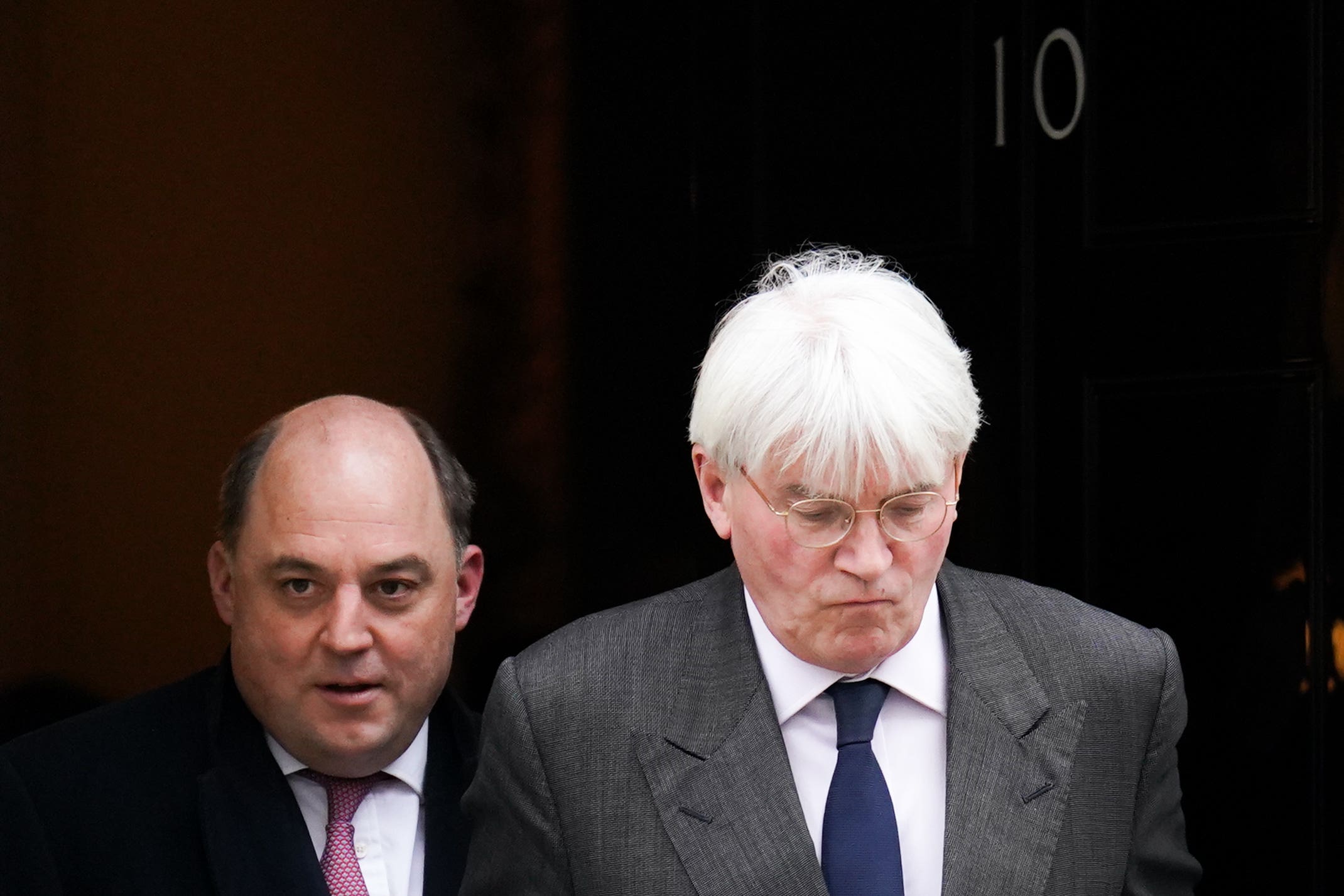Government urged to help Britons trapped in Sudan as war rages
A Foreign Office minister urged UK nationals in the war-torn nation to stay indoors.

British nationals trapped in Sudan should stay indoors and await further information, a minister said as the Government comes under mounting pressure to bring them to safety.
One estimate said up to 4,000 UK citizens could be stranded in the war-torn African nation amid deadly street fighting and a shortage of food, water and electricity.
Some said they felt “abandoned” after diplomats were rescued in a night-time evacuation mission and were organising dangerous private evacuations.
The situation is absolutely desperate and a ceasefire is what is required
Foreign Office minister Andrew Mitchell said the Government is doing “everything we can” to get British nationals out, but dampened hopes of it happening before a ceasefire.
He defended the prioritisation of embassy staff, saying there had been “a very specific threat to the diplomatic community” in the capital Khartoum.
Alicia Kearns, the Tory chairwoman of the Commons Foreign Affairs Committee, called for the focus to now shift to getting UK civilians out “because there is no imminent sign of a ceasefire”.
She estimated there could be “3,000, 4,000 plus” British nationals trapped in Sudan.
When it was put to her that one person claimed to have received only two computer-generated text messages from the UK Government telling him to stay inside, Ms Kearns said: “So that would suggest that no lessons have been learned since Afghanistan, and I have urged the Government to make sure they are communicating regularly with British nationals.”
Ms Kearns said Britons in Sudan will be in “abject fear”, with reports of some people killing their pets “because they’re worried they’re going to starve”.
“The reality is we have to get British nationals out. If, however, there was to be no evacuation because it’s too dangerous … then we have a moral obligation to tell British nationals as soon as possible that that is the judgment that has been made because they then need to be able to make their own decisions.”
Meanwhile, other nations have rushed to get their citizens out.
The European Union’s foreign policy chief Josep Borrell said more than a thousand people have been extracted through the combined efforts of member states.
Around 50 Irish citizens have been evacuated from Khartoum to Djibouti with the support of France and Spain, with more evacuations planned, deputy premier Micheal Martin said.
Tobias Ellwood, chairman of the Commons Defence Committee, called for a “clear-cut plan” to get British passport-holders out of Sudan.
“If that plan does not emerge today, then individuals will then lose faith and then start making their own way back,” he told GB News, saying that could lead to “some very difficult situations”.
William, a UK citizen in Sudan, told the BBC he was forced to “go private” and leave Khartoum on a bus arranged by his Sudanese employer because “we’ve had absolutely nothing but nonsense from the Government”.
Iman Abugarga, a British woman who has been sheltering in Khartoum, said she feels “absolutely” abandoned by the British Government.
“It is shameful how they have mismanaged this situation,” she told the Telegraph.
Prime Minister Rishi Sunak confirmed on Sunday there had been a “complex and rapid” evacuation of British diplomats and their families from Khartoum, a city gripped by an internal battle for control between rival generals.
More than 400 people have died and thousands hurt in a bloody conflict between the Sudanese army and a powerful paramilitary group known as the Rapid Support Forces (RSF).
The official advice continues to be for UK nationals to register their presence in Sudan with the Foreign Office and shelter in place.
Mr Mitchell said the number of people registered has grown significantly over the last two days to around 2,000.
He told the Today programme: “The situation is absolutely desperate and a ceasefire is what is required. And the only advice that Britain can give to people is to stay indoors because that is the safe option.”
He told Sky News: “We will do everything we can, and I mean everything, to get our British citizens out.”
He could not say when that may happen, but said “every single option is being explored in detail”.
Labour leader Sir Keir Starmer tweeted: “I desperately hope that those still stuck in the conflict are brought to safety as soon as possible.”
Without an end to the fighting, ministers are “severely limited in our ability to provide assistance to British nationals”, Foreign Secretary James Cleverly said.
The prospect of airlifting large numbers of people out of Sudan has been complicated by the fact most major airports have become battlegrounds, while movement out of the capital has proved perilous.
US special forces evacuated about 70 American workers from Khartoum on Sunday but Washington has so far said it remains too dangerous to carry out a government co-ordinated mass evacuation of citizens.
The current explosion of violence comes after two generals fell out over a recent internationally brokered deal with democracy activists which was meant to incorporate the RSF into the military and eventually lead to civilian rule.
Bookmark popover
Removed from bookmarks